Would you pay $200 for Motorola XOOM LTE?
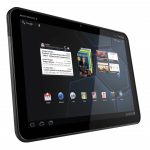
Verizon kicked off helluva holday sale for XOOM LTE on Black Friday -- and you can still get it today online: $199.99 with new two-year activation. But hurry, if interested. Surely pricing like this can't last. That's $529.99 less than the closest comparable iPad 2, and you won't get an LTE radio from Apple.
Is that price low enough for you to buy? In February, when XOOM pricing first leaked, I asked: "Would you pay 800 bucks for the Motorola XOOM?" Eh, no, you wouldn't. You didn't like $600, when I asked about it later on. But now the price is way less, so I'm asking again. Would you pay $200 for Motorola XOOM LTE? Please answer in comments.
Motorola combines its two strongest phone brands, unveils the 4G Droid Razr
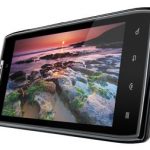
Motorola Mobility on Tuesday revealed its newest flagship Android smartphone, the Droid Razr, a device that combines Motorola's most lasting brands in a single package.
Droid Razr has a 4.3" Super AMOLED qHD display with Corning's Gorilla Glass protecting it. The original Razr's claim to fame was that it was flat and dramatically thinner than other flip phones available at the time of its release. The Droid Razr attempts to do the same thing for touchphones, and comes in at a slim 7.1mm in thickness. Motorola Mobility CEO Sanjay Jha on Tuesday said it will be the thinnest smartphone on the market.
Motorola Solutions launches its first Android tablet for retail
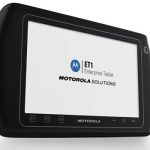
Motorola Solutions on Monday debuted the ET1, the company's first attempt at an Android tablet specifically for use in retail solutions such as point of sale, planogram management and compliance, item location, and general retail manager assistance.
The tablet has a 7" (1024 x 600) display with Corning's Gorilla Glass covering the LCD, a dual-core 1GHz processor, 1GB of RAM, 4GB of onboard flash memory and support for microSD up to 32GB. It has a barcode scanner, credit card reader, front and rear cameras, a hot-swappable battery pack with 15-minute RAM backup when the main battery is removed, and the whole thing runs an "enterprise-ready, hardened" version of Android 2.3.4
For Motorola, there are a couple of reasons why this is a big product. The company's handheld computer class of devices (which it describes as being "designed for retail, public agencies, logistics and mobile fleets…") has been dominated by Windows Mobile and Windows CE for a long time, so the introduction of Android in this space is especially noteworthy.
Motorola's Android sales are kaput...no big deal
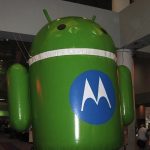
According to market research company NPD Group, the sale of Android-based handsets grew 29% in the second quarter of this year, bringing the operating system to a 52% share of the US market. Contributing to this growth were South Korean manufacturers Samsung and LG, which both experienced "substantial gains."
But while Samsung and LG were improving their Android sales, Motorola Mobility fell dramatically.
How much is a patent worth? By Google math $510,204.08

It appears as if Google is attempting to set a baseline for the value of a patent, according to some analysts who took a closer look of its acquisition of Motorola Mobility. Industry watchers widely believe that the Mountain View, Calif. search giant's primary interest in the acquisition was the massive portfolio of patents that could be used in defending Android.
Motorola holds about 24,500 patents, and it gives Google a huge shot in the arm when it comes to intellectual property. It paid $12.5 billion for the phone manufacturer, but it appears that the hardware business had little to do with the company's perceived value.
Can Google-Motorola Mobility bring stability to the Force?
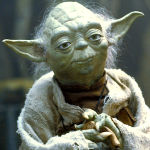
"We will be looking with interest as further details of the proposed transaction become clear. But, at first glance, to the extent that this deal might bring some stability to the ongoing smartphone patent disputes, that would be a welcome development" -- John Thorne, Verizon deputy general counsel, speaking about Google's $12.5 billion Motorola Mobility acquisition.
The statement, as reported today by the Wall Street Journal, is refreshing for perspective -- that sanity might return after an increasing number of mobile patent lawsuits, among which Apple is point of axis (mostly as protagonist, but also defendant). Armed with a large stash of newly acquired Moto Mobility patents -- more than 24,000, and, of course, not all about mobile devices -- Google's position to defend Android licensees is stronger. Hell, Motorola invented the cell phone. Surely there is something Google can use as a club to beat back Apple lawyers.
Real people react to Google's Motorola Mobility acquisition

Some of the best commentary about the pending Moto merger is taking place on Google+. So I've collected some of the more insightful opinions so that you don't have to search the social network for them.
The responses are about as "real people" as the geekfest of commentary going at Google+ today can be. I've randomly pulled reaction from journalists, IT admins, Android enthusiasts and mobile gearheads; surprisingly, or perhaps not because of the social venue, they're enthused. I actually expected more criticism, but maybe I'm in the wrong Plus Circles for that.
A history of Motorola: From a warehouse in Chicago to Google's arms
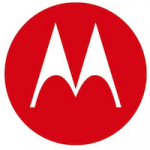
Across its 83 years in business, Motorola has spent all of it focusing on mobile technologies, and nearly 65 years in the cell phone business. You could argue that the company was a pioneer in the sector, possibly the reason why it became so attractive to Google.
We've put together this (somewhat) comprehensive list of Motorola's activities in the sector to give you an idea of just how important of a role the company has played in mobile technology.
Larry Page has got some kind of balls to buy Motorola Mobility

Google's CEO proved his mettle today, just four months after assuming the role from Chairman Eric Schmidt. Google's $12.5 billion Motorola Mobility acquisition is bold for its risks, which are no less great than the benefits.
There's something fitting about the merger. Motorola Droid, backed by $100-million Verizon ad blitz, made Android. Google launched Android on a single handset (the G1) from a single carrier (T-Mobile) in autumn 2008. Moto Droid launch came about a year later. The operating system really took off -- really started wooing consumers, developers and handset makers -- following the Droid line's stunning success. In 2010, Android sales grew 888.8 percent according to Gartner. Android shipped on 48 percent of smartphones in second quarter 2011, according to Canalys.
What Google CEO Larry Page has to say about Moto Mobility buy

Google CEO Larry Page on Monday outlined the importance Motorola has played in the foundation of Android and its growth across the world, and the role it will play moving forward. This is a repost of content that Page posted both in the official Google Blog and on his Google+ feed, but we all felt it was a very important statement about today's landmark acquisition, and that it should be read in its entirety.
Since its launch in November 2007, Android has not only dramatically increased consumer choice but also improved the entire mobile experience for users. Today, more than 150 million Android devices have been activated worldwide--with over 550,000 devices now lit up every day--through a network of about 39 manufacturers and 231 carriers in 123 countries. Given Android's phenomenal success, we are always looking for new ways to supercharge the Android ecosystem. That is why I am so excited today to announce that we have agreed to acquire Motorola.
Google buys Motorola Mobility, Android's top supporter

Google thoroughly rocked the smartphone world on Monday morning by announcing it will be acquiring Android phone maker Motorola Mobility for approximately $12.5 billion. Motorola Mobility has existed as a standalone entity for just 8 months, and has produced some of the most successful Android smartphones such as the first Droid with Verizon Wireless.
Most importantly, though, Motorola Mobility holds one of the most valuable wireless patent portfolios in the business, and this acquisition serves as a follow up to the Nortel Patent auction where Google placed bids, but lost out to a consortium of bidders that included Apple, EMC, Microsoft, Ericsson, Research in Motion, and Sony.
Motorola should cash in its valuable wireless patents, says Carl Icahn

Billionaire activist investor Carl Icahn thinks Motorola Mobility might be sitting on a goldmine with its wireless patent portfolio, and thinks the mobile communications company should perhaps begin shopping them around.
In an amended schedule 13D Icahn filed with the SEC today, the investor's beliefs were clearly laid out:
Recent Headlines
BetaNews, your source for breaking tech news, reviews, and in-depth reporting since 1998.
Regional iGaming Content
© 1998-2025 BetaNews, Inc. All Rights Reserved. About Us - Privacy Policy - Cookie Policy - Sitemap.